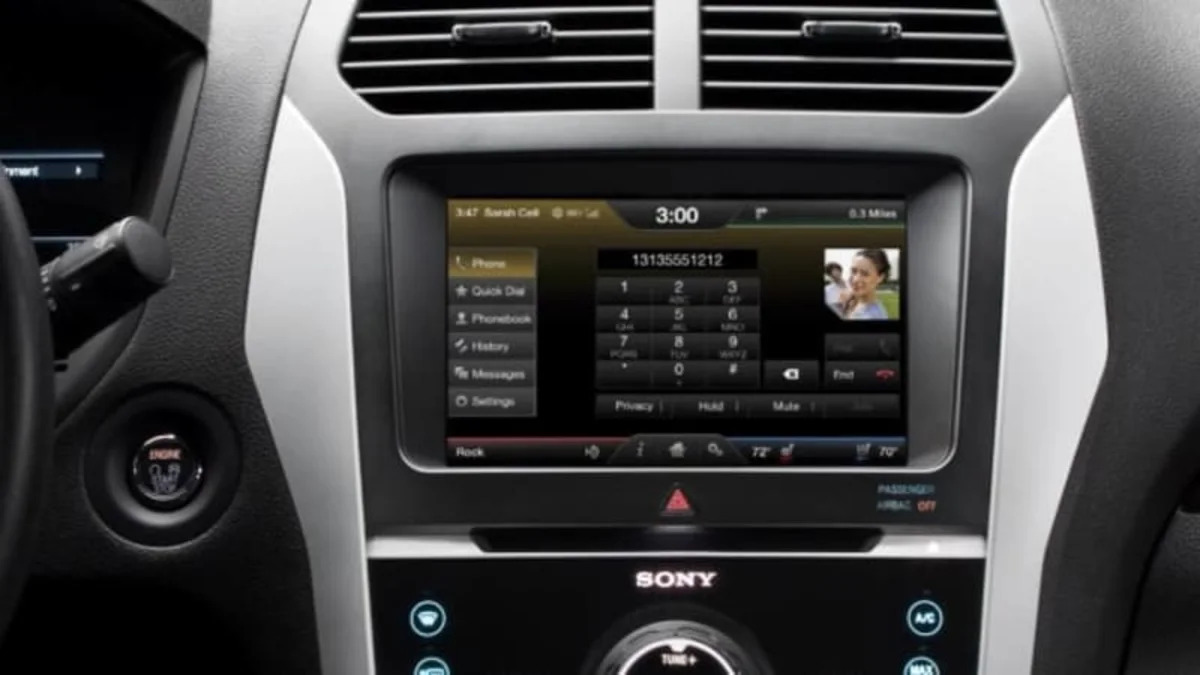Let's just all admit that in its current state voice recognition technology is atrocious. The success rate even with Apple's Siri feels like it hovers around 50 percent and similar systems aren't much better. There are just too many possible accents, cadences and word choices to make the tech a viable proposition right now. Even worse, all of the additional noise in a car makes things less responsive when you try to bring speech recognition onto the road. One AAA study found that using a text-to-speech function in a vehicle was actually more distracting than using a handheld phone, and Consumer Reports has been railing against infotainment design in general for a while for their un-usability.
According to the industry analysts at J.D. Power, the solution to this automotive scourge is incredibly simple – dump them and figure out the basics first. During a speech at the 2014 Management Briefing Seminars, the company's executive director of interaction Kristin Kolodge lambasted voice recognition in cars, according to Automotive News. She said that a third of the organization's infotainment-related complaints are due to this tech, but the industry isn't listening. "Only one of the motorists we talked to wanted more features. The majority just wanted their systems to work," she said.
Her talk echoed J.D. Power's own 2014 Initial Quality Survey where it said, "the increase in problems among all-new vehicles is found mainly in the areas of voice recognition, Bluetooth pairing and audio systems." Kolodge's recommendation was for automakers to perfect basic functions like phone calls and navigation first, then they could move to more advanced functions.
Of course, Kolodge's suggestion isn't likely to gain much traction in the industry. Few automakers are going to welcome removing features that cost millions to develop. That doesn't mean it wouldn't be worth considering, though.
According to the industry analysts at J.D. Power, the solution to this automotive scourge is incredibly simple – dump them and figure out the basics first. During a speech at the 2014 Management Briefing Seminars, the company's executive director of interaction Kristin Kolodge lambasted voice recognition in cars, according to Automotive News. She said that a third of the organization's infotainment-related complaints are due to this tech, but the industry isn't listening. "Only one of the motorists we talked to wanted more features. The majority just wanted their systems to work," she said.
Her talk echoed J.D. Power's own 2014 Initial Quality Survey where it said, "the increase in problems among all-new vehicles is found mainly in the areas of voice recognition, Bluetooth pairing and audio systems." Kolodge's recommendation was for automakers to perfect basic functions like phone calls and navigation first, then they could move to more advanced functions.
Of course, Kolodge's suggestion isn't likely to gain much traction in the industry. Few automakers are going to welcome removing features that cost millions to develop. That doesn't mean it wouldn't be worth considering, though.


Sign in to post
Please sign in to leave a comment.
Continue